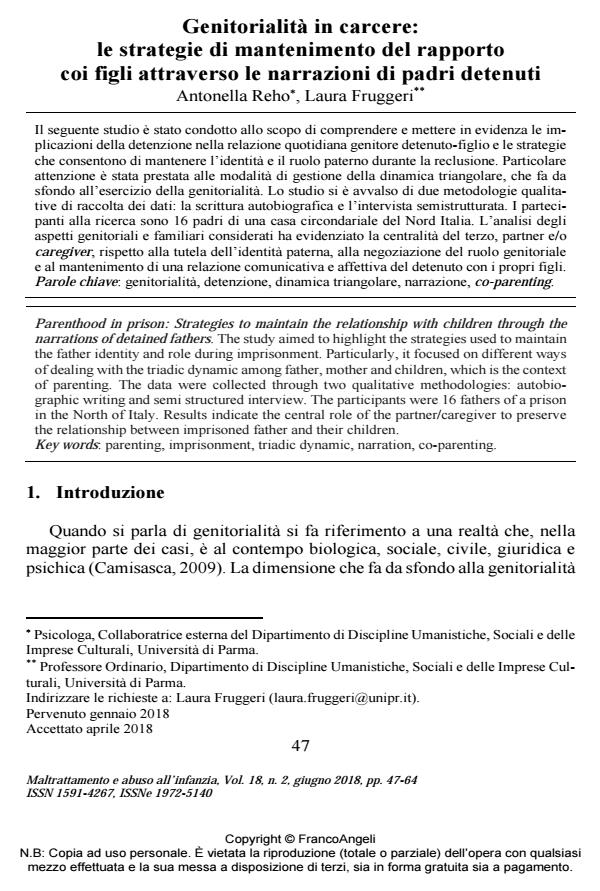Parenthood in prison: Strategies to maintain the relationship with children through the narrations of detained fathers
Journal title MALTRATTAMENTO E ABUSO ALL’INFANZIA
Author/s Antonella Reho, Laura Fruggeri
Publishing Year 2018 Issue 2018/2
Language Italian Pages 18 P. 47-64 File size 223 KB
DOI 10.3280/MAL2018-002004
DOI is like a bar code for intellectual property: to have more infomation
click here
Below, you can see the article first page
If you want to buy this article in PDF format, you can do it, following the instructions to buy download credits

FrancoAngeli is member of Publishers International Linking Association, Inc (PILA), a not-for-profit association which run the CrossRef service enabling links to and from online scholarly content.
The study aimed to highlight the strategies used to maintain the father identity and role during imprisonment. Particularly, it focused on different ways of dealing with the triadic dynamic among father, mother and children, which is the context of parenting. The data were collected through two qualitative methodologies: autobiographic writing and semi structured interview. The participants were 16 fathers of a prison in the North of Italy. Results indicate the central role of the partner/caregiver to preserve the relationship between imprisoned father and their children.
Keywords: Parenting, imprisonment, triadic dynamic, narration, co-parenting
Antonella Reho, Laura Fruggeri, Genitorialità in carcere: le strategie di mantenimento del rapporto coi figli attraverso le narrazioni di padri detenuti in "MALTRATTAMENTO E ABUSO ALL’INFANZIA" 2/2018, pp 47-64, DOI: 10.3280/MAL2018-002004